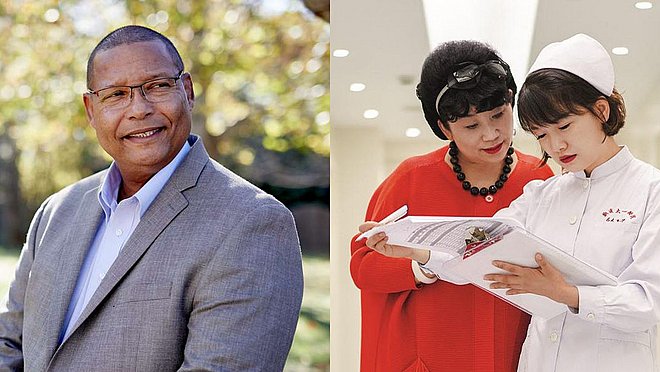Quality makes the difference
Fresenius Medical Care opened two dialysis centres in the Helsinki hospital district in the Finnish capital in 2019. It is a rare occurrence in the Nordic country’s healthcare system for a private company to run a centre. This is a big step forward for our small Finnish branch. A triumph of teamwork and patience.
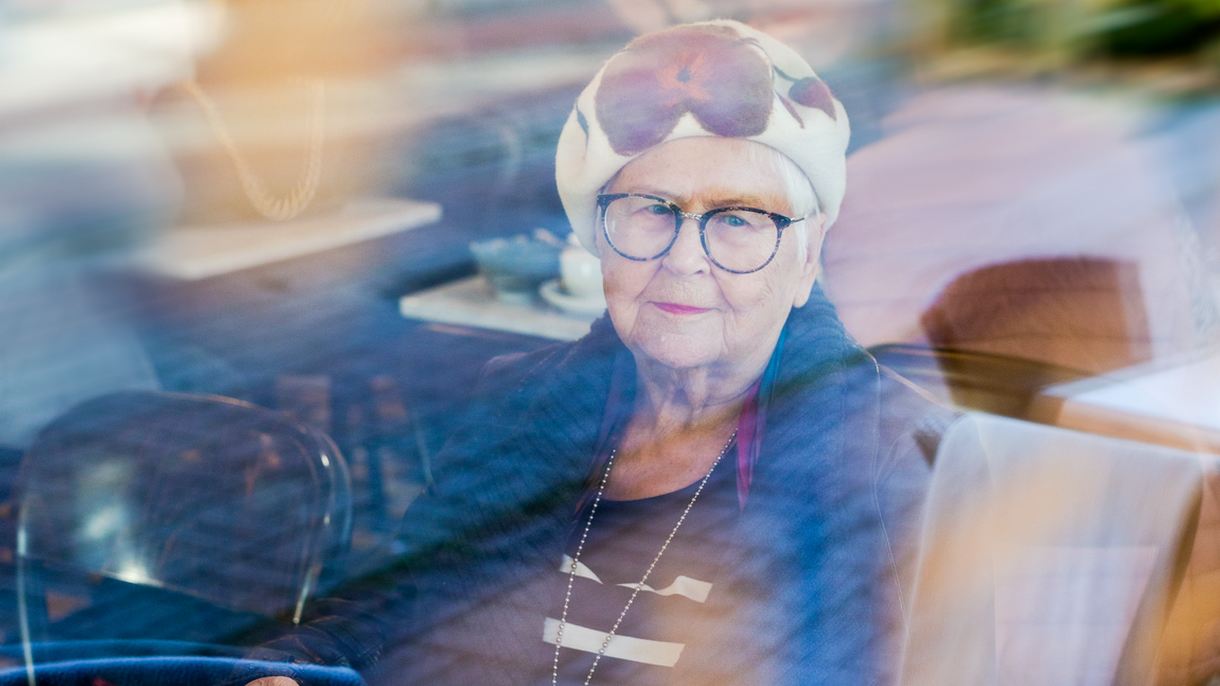
Every now and then, Sirkka-Liisa Alén enjoys a little time-out at a small cafe about ten minutes away from her dialysis clinic.
Sirkka-Liisa Alén has experienced a lot in her life. After a teaching career, she went on to hold several positions in the healthcare sector. But that was a long time ago. She has been retired for over three decades now. For the past two and a half years, she has relied on dialysis treatment. That is why she makes the journey herself by taxi to the Pitäjänmäki dialysis centre in Helsinki several times a week, says hello to the dialysis nurses, and sets about getting her own treatment ready.
Then she makes herself comfortable on bed 31 – it is always the same one – and waits for a nurse to connect her to the dialysis machine. A tablet computer is attached to a little table in front of her. “I always watch the morning show on TV,” says Alén. She is one of the oldest patients at the Pitäjänmäki dialysis centre, which opened just recently in spring 2019. “The treatment here is good, but afterwards, I feel exhausted,” she admits. Does she find that dialysis puts a big strain on her? She has to think for a while before answering, clearly not wanting to simply say yes. “Well, I’m the eldest of three sisters, and compared to the other two, I’m still in the best health,” is her eventual reply.

I’m the eldest of three sisters, and compared to the other two, I’m still in the best health.
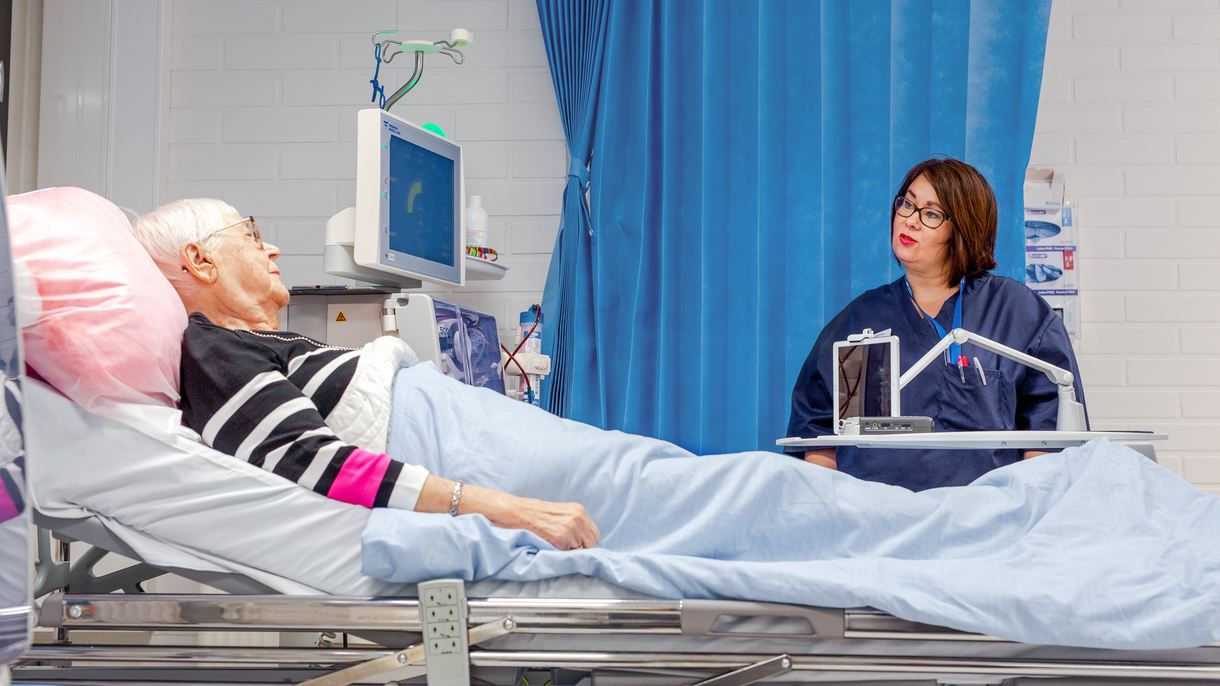
A healthcare system facing new challenges
Alén is not one to complain. She still lives alone and leads an independent life. Her family is a very important part of it. One of her sisters lives a stone’s throw away from her home. “On the days when I go to the centre for my dialysis session, she cooks for me and we meet up for lunch.”
Today, Alén has to spend around four hours at the centre. A dialysis nurse stays in the room throughout and is on hand for patients if they want anything or need help. Whenever Alén is there, Sirkku Sayeed-Väisänen comes to her bedside to see her. They both look forward to having the chance to talk to each other for a while. However, Sayeed-Väisänen does not have time to stay for long. As Head Nurse, she is responsible for the whole centre.

Finland is divided into 20 hospital districts. The Hospital District of Helsinki and Uusimaa covers a population of about 1.7 million inhabitants.
Finland as a role model within Europe
Anyone who lives in a vast country is probably likely to develop a completely distinct way of life that above all focuses on independence, responsibility and discipline. These characteristics are also the cornerstones of Finland’s healthcare system. Nurses here are generally entrusted with more responsibility than is common in other countries. But access to healthcare services is also much more strictly regulated. The result is a relatively efficient healthcare system with a sound cost structure.
Finland is regarded as a role model within Europe in many areas of society. For many years, European healthcare experts headed northwards to find out why the Finnish healthcare system is so efficient. They returned with the message that the country also stands out due to the fact that it embraces technological advances.
For some time, however, it has become apparent that the future is not as rosy as it would at first seem: Finland is the fastest-aging society in Europe. The birth rate is in constant decline, while people are growing increasingly older – the demographic gap is widening here as it is in many industrialised nations. Yet this development is threatening to hit the nation of 5.5 million people in northeastern Europe especially hard.
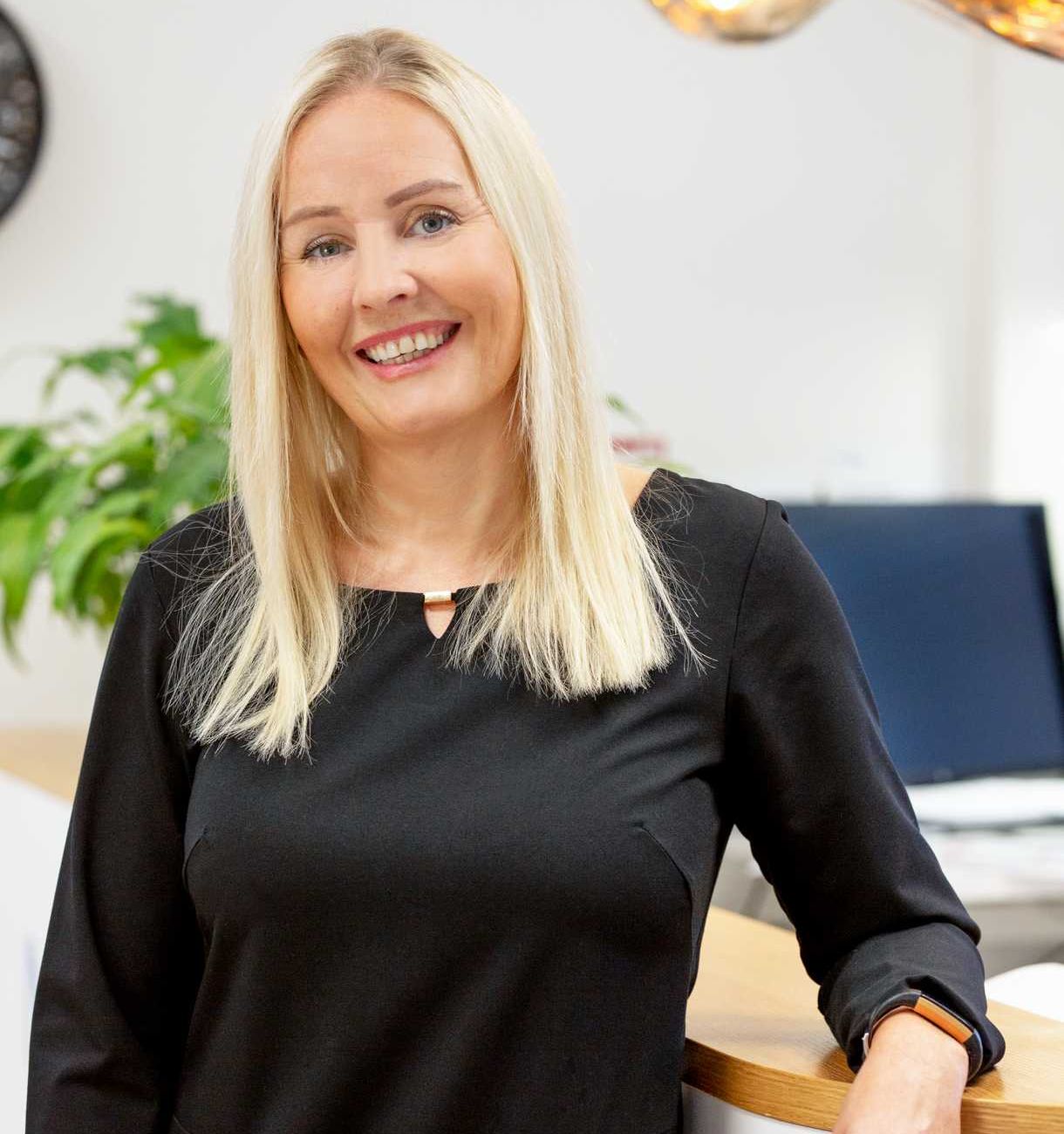
Minna Väänänen, Sales Director of Fresenius Medical Care Finland
Nearly all services are performed in Finland by government institutions that are concentrated in health centres and clinics. Privately run facilities such as the Fresenius Medical Care centres are very much the exception.
From product supplier to innovation driver
The 24-strong team at the Finnish branch was therefore all the more proud to be awarded the contract for the two dialysis centres in 2018 by HUS, one of the largest administrative entities in the Finnish healthcare system.
“This success story goes back ten years,” Väänänen explains. “At the time, we had built up a totally new, multidisciplinary team,” recalls Minna Väänänen.
Marja Stenborg also came on board back then as part of the medical management team. The nephrologist contributes her medical expertise to turn employees in both product sales and patient care into experts in their field by teaching them specialist medical knowledge. “Our employees are often the first to bring the latest findings and innovative products into hospitals,” says Stenborg.
This has helped to gradually shape the company’s image as an innovation driver in Finland. In the meantime, Fresenius Medical Care is no longer regarded as just a supplier of machines and materials, but is considered a partner when it comes to improving dialysis care in Finland. “I would say that our joint efforts in the last ten years were instrumental in winning the contract for the two centres,” says Stenborg.
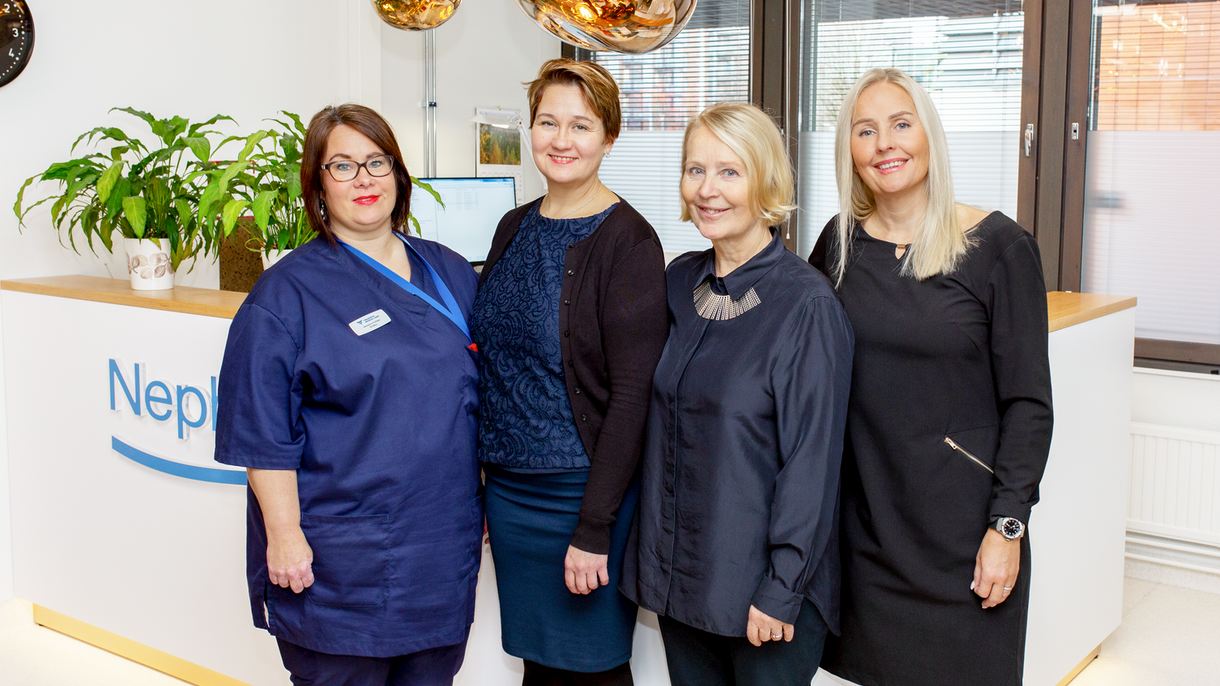
Teamwork is their motto: Sirkku Sayeed-Väisänen, Maarit Taskinen, Marja Stenborg, Minna Väänänen (from left to right)
There is a great emphasis on teamwork at Fresenius Medical Care in Helsinki. Finding suitable premises in a specified area, converting them and fitting out the resulting centre with clinical equipment, all in an extremely short timeframe, requires total commitment.
The inauguration of both centres demonstrates that Fresenius Medical Care has gained a reputation as a highly reliable player in the Finnish healthcare system. “We are the only private centre operator,” Väänänen explains. “We currently stand at more than 60 per cent in haemodialysis in the product sector, and at around 80 per cent in the acute sector.” This means that the company has successfully made the leap from product to service business.
Home dialysis to continue to grow
This provides us with a solid foundation for the future – one in which the Finnish healthcare system will have to be reformed in order to meet its challenges. The two centres are also a showcase in this respect, “as a way of demonstrating just what we can do,” says Stenborg. “We share new information, and train nurses and physicians.” One of the main goals is to help patients take more responsibility for their health. “This is an important issue here in Finland,” acknowledges the nephrologist.
Fresenius Medical Care’s efforts in Finland are intended to show that private healthcare services do not necessarily have to be more expensive than state-provided ones and that they can be even better in terms of quality and performance.
The proportion of home dialysis patients in Finland is already at around 30 per cent today and could grow even further in the future, especially if patients are given even better information and advice about their options.
Such a step is presumably not an option for Alén, who prefers coming to the centre, where she can find support and has the chance for a conversation with the dialysis nurses. Väänänen, Stenborg and the other specialists at Fresenius Medical Care Finland are keeping a very close eye on developments in their home market. They believe they are well-equipped for the future. And they also know already how they plan to tackle further growth: with teamwork, of course.
